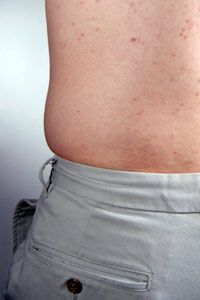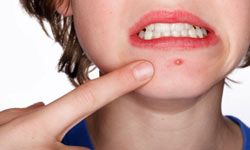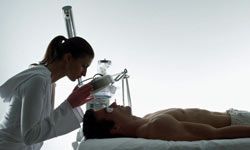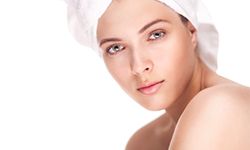Almost everyone knows that familiar, loathsome feeling of looking in the mirror one morning and finding a giant pimple on your face. But what if you awoke to find blemishes covering your chest, back, arms and bottom? Actually, body acne is more common than you may think -- it's just seldom talked about. But even if you don't want to talk about it, if you have body acne, you probably want to know how to get rid of it.
Body acne is similar to facial acne in both its symptoms and its treatments, and people who have facial acne are more likely to develop body acne. Acne forms when pores or hair follicles become clogged with dead skin and oil. Therefore, it makes sense that acne can form wherever there are sebaceous glands -- the glands responsible for the production of sebum, or oil -- and hair follicles. Body acne is most commonly found on the back, chest, and neck, but blemishes can appear anywhere except the palms of your hands and soles of your feet [source: Kern]. Body acne can be more challenging to control than facial acne -- the skin on your body is thicker and has larger pores than facial skin, making it easier for pores to become clogged. Plus, these areas are often clothed, which means your skin has constant contact with the oil it produces [source: Acne Skin Guide].
Advertisement
You obviously can't stop your skin from secreting oil and clogging your pores, but you can help prevent body acne by cleansing your skin properly. Read on to learn more.



